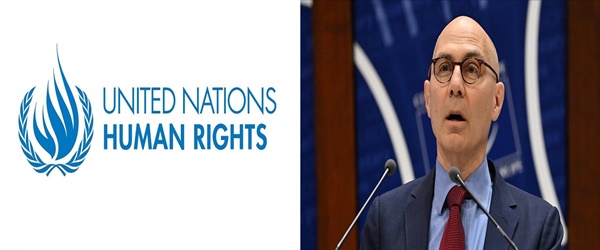The UN Human Rights Office has found the former government of Bangladesh and security and intelligence services, alongside violent elements associated with the Awami League party, were systematically engaged in a range of serious human rights violations during last year’s student-led protests.
Moreover, the UN has suggested not banning any political party, as it could undermine a return to a genuine multi-party democracy and effectively disenfranchise a large part of the Bangladeshi electorate. In a report published today, the Office of the United Nations High Commissioner for Human Rights further asked to ensure a safe and enabling environment for free and genuine elections, including by respecting fundamental freedoms.
The report also suggested that the functions of the Border Guards Bangladesh should be confined to border control issues and that the Directorate General of Forces Intelligence (DGFI) be limited to military intelligence. It has recommended disbanding the Rapid Action Battalion (RAB).
Drawing on testimony of senior officials and other evidence, it also found an official policy to attack and violently repress anti-government protesters and sympathisers, raising concerns as to crimes against humanity requiring urgent further criminal investigation.
Based on deaths reported by various credible sources, the report estimates that as many as 1,400 people may have been killed between 1 July and 15 August, and thousands injured, the vast majority of whom were shot by security forces. Of these, the report indicates that as many as 12-13 percent of those killed were children. Bangladesh Police reported that 44 of its officers were killed.
The protests were triggered by the High Court’s decision to reinstate a quota system in public service jobs but were rooted in much broader grievances arising from destructive and corrupt politics and governance that had entrenched economic inequalities. To remain in power, the former government tried systematically to suppress these protests with increasingly violent means, the report finds. The brutal response was a calculated and well-coordinated strategy by the former government to hold onto power in the face of mass opposition, said UN Human Rights Chief Volker Turk.









































